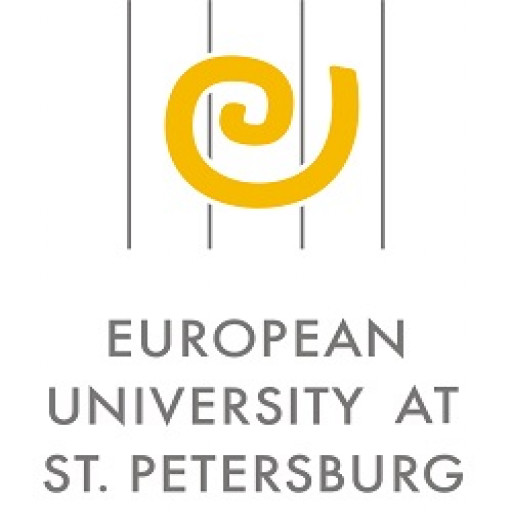Photos of university / #kazanfederaluniversity
Neurobiology is a comprehensive interdisciplinary program offered at Kazan Federal University, designed to provide students with a profound understanding of the structure, functions, and disorders of the nervous system. This program combines coursework in biology, chemistry, physics, and medicine, equipping students with both theoretical knowledge and practical skills essential for research and professional activities in neuroscience. Throughout the program, students explore key topics such as cellular and molecular neurobiology, neuroanatomy, neural networks, and brain physiology, gaining insights into complex neural processes that underlie behavior, cognition, and neurological diseases.
The curriculum emphasizes modern research techniques, laboratory work, and experimental methods, enabling students to acquire competencies in neuroimaging, electrophysiology, and neuroinformatics. Special attention is given to the development of critical thinking and analytical skills necessary for interpreting experimental data and contributing to scientific advancements in neurobiology. The program also addresses medical aspects of neurology and neuropsychology, preparing students for potential careers in biomedical research, clinical practice, or industry-related roles.
Students benefit from the university’s state-of-the-art research facilities and collaborative environment, which fosters innovation and academic excellence. The program aims to cultivate highly qualified specialists capable of addressing contemporary challenges in understanding nervous system functions, neurodegenerative diseases, and mental health disorders. Graduates are equipped to pursue further postgraduate studies or employment opportunities in hospitals, research institutes, pharmaceutical companies, and biotechnology industries, contributing to the advancement of healthcare and neuroscience worldwide. The Neurobiology program at Kazan Federal University is committed to providing a rigorous and enriching academic experience, preparing students to become leaders in the dynamic field of neuroscience and neurobiology.
General courses
- Philosophy in Life Sciences
- Psychology of leadership: training workshop
- Professional languages: Russian and English (or other foreign language)
- Basics of Economics and Management sciences
- Ethics in biomedical research and practice of medicine
- History and methodology of biomedicine
- Computer technologies in biology, medicine and pharmaceuticals. Programming and mathematical modelling
Special courses
- Molecular and cellular neurobiology (ion channels, synapses, the basics of excitability, neurochemistry);
- System neurophysiology
- Cognitive neuroscience (mechanisms attention, perception, decision making, memory, motivation, language, emotion)
- The ontogeny of the nervous system (the study of brain development and the role of early activity in the formation of neural networks in the pre- and postnatal human and rat
- Computational neuroscience and modeling
Those graduates already holding a Bachelor's degree can apply for admission to Master's degree programs. Bachelor or specialty degree in Life Sciences, Medicine is preferred
- Applicants must have a qualification/degree corresponding to a 4-year educational program of higher education.
- If English is not the student's native language, then his/her TOEFL examination results (or equivalent) will be no less than 80 for an on-line test, or no less than 5,5 for IELTS. Training within the Program will be given in English and Russian languages.
- Interview
- To be able to study education in Russian students are recomended to pass preparatory courses of Russian languge for 10 months.
The financing of the Neurobiology program at Kazan Federal University is primarily supported through a combination of federal and regional funding sources, tuition fees paid by students, and potential scholarships or grants available to domestic and international students. Federal budget allocations are allocated to cover the operational costs of the university’s scientific research facilities, laboratories, and educational resources necessary for comprehensive neurobiological studies. Regional government support contributes to infrastructure development, faculty salaries, and the procurement of specialized equipment necessary for advanced neurobiology research.
Tuition fees for the program vary depending on the student’s nationality and admission category. Russian citizens typically benefit from subsidized education, with costs covered partly by the federal and regional budgets, whereas international students pay full tuition, which helps support the financial sustainability of the program. The university actively participates in national scholarship programs, such as the Russian Federal Scholarship and regional grants, which assist talented students in financing their studies. Additionally, students can apply for external scholarships from scientific foundations, governmental programs, and international organizations promoting neuroscience research.
Research grants form a significant part of the program’s financing structure. Faculty and students participate in national and international research projects, which often include funding for laboratory experiments, data collection, and scientific publications. These grants are awarded based on competitive applications and are vital for advancing neurobiological research and maintaining high educational standards.
The university also encourages corporate partnerships with pharmaceutical companies, biotechnology firms, and medical institutions. These collaborations sometimes provide funding for specific research projects, internships, and educational workshops, thereby enriching the educational process and ensuring practical training opportunities for students.
Kazan Federal University supports the integration of research activities with educational programs, ensuring financial resources are efficiently distributed to promote innovation and academic excellence within the Neurobiology program. The university’s strategic plan includes continuous efforts to diversify funding sources, increase research grants, and expand scholarship opportunities, making the program financially sustainable and attractive to prospective students.
Overall, the comprehensive financing plan for the Neurobiology program is designed to ensure high-quality educational and research activities, provide accessible education for talented students, and foster an environment conducive to scientific breakthroughs in neurobiology.
Experimental basis for the implementation of research projects of the program are Laboratory of Neurobiology and Motor Rehabilitation, which were organized at the Department of Human and Animal Physiology. Laboratory of Neurobiology has the status of an International laboratory associated with the Mediterranean Institute of Neurobiology, Marseilles, France. The laboratory is equipped by the highest international standards and allows students to carry out research at the level of ion channels, neuronal networks and cognitive functions. Electrophysiological studies can be fulfilled both in cell cultures, brain slices (in vitro), and the whole brain of an animal (in vivo). For extracellular recording the activity of the cerebral cortex unique multi-channel silicon electrodes are used, allowed for simultaneous recording and analyzing the work of ensembles of neurons, optical recording methods. In the laboratory leading scientists, recognized worldwide are working. One of the main research directions of the laboratory is devoted to the study of brain development in ontogeny. Other areas of researches are included the neurobiology of pain, mechanisms of synaptic plasticity. Students are given the opportunity of internships in foreign laboratories.




